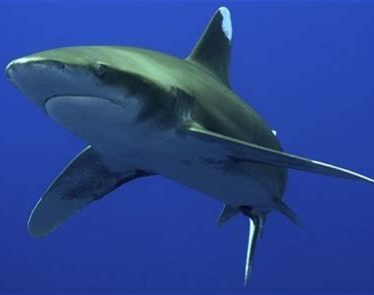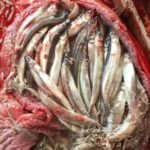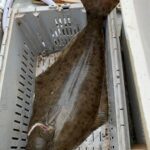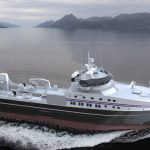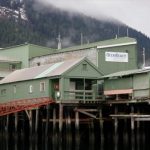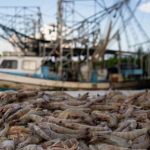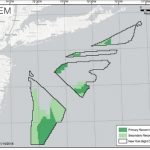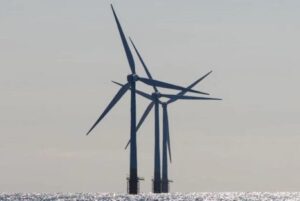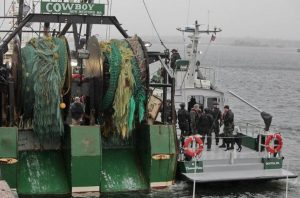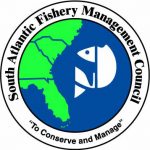Tag Archives: National Marine Fisheries Service
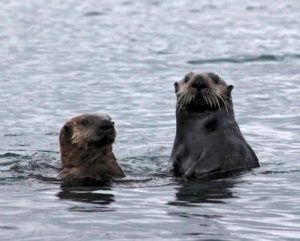
Sea otter resolution gets first hearing in Senate committee, asking Congress to amend the Marine Mammal Protection Act
A Senate committee Monday, March 12 heard from supporters and opponents of state involvement in the management of sea otters in Southeast Alaska. The Senate Resources committee held its first hearing on Senate joint resolution 13, which calls on the federal government to allow the state or a Native organization to co-manage the rebounding marine mammals and seek ways to increase harvest of otters. >click to read< 14:53
State seeks federal exemption to manage sea otters – The Legislature is considering two resolutions, one in the House and one in the Senate, asking Congress to amend the Marine Mammal Protection Act and,,, >click to read<
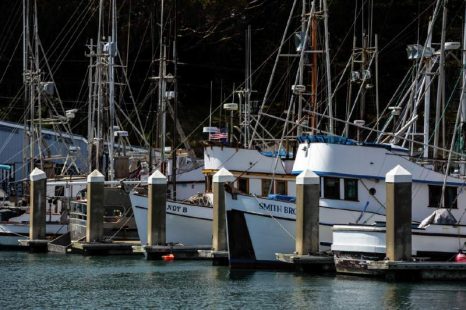
Has California’s salmon fishery hit bottom?
A third straight year of low king salmon runs is expected to deliver another blow to one of the North Coast’s most iconic and lucrative fisheries, wildlife managers indicated Thursday, as both regulators and fishermen faced the prospect of a federally -mandated plan to reverse the trend and rebuild key stocks. The grim news comes amid a dramatic, years-long decline in the state’s commercial salmon landings, which are down 97 percent last year from their most recent peak, in 2013, when they hit 12.7 million pounds. The full picture for commercial and sport seasons won’t be clear for several more weeks,,, >click to read< 13:01

The Shutdown
The National Marine Fisheries Service shut down Sector IX because the majority of its boats and quota belong to Carlos Rafael. This came without warning last November 22 and the order also waived the customary 30-day delay in effectiveness. Far from resolving anything this has exacerbated a bad situation by throwing a widening circle of business owners under the bus as the weeks drag by. >click to read< 15:38
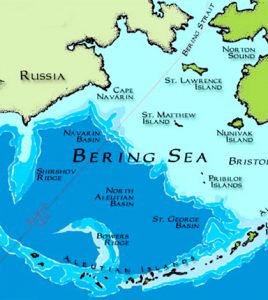
Bering Sea Cod caught quickly – “I wouldn’t be surprised if it’s the shortest ever,”
The Bering Sea federal trawl cod fishery closed in what may be record time on Feb. 11, just 22 days after the Jan. 20 opener, according to National Marine Fisheries Service Biologist Krista Milani in Unalaska/Dutch Harbor.,,, The North Pacific Fishery Management Program is now considering a plan to restrict the number of boats eligible to fish for cod in the Bering Sea. The fish council floated ideas to limit catcher vessel participation in the Bering Sea cod fishery, including controversial catch shares or individual fishing quotas, during a December meeting in Anchorage. >click to read< 15:00 

California’s crab fleet awaits share of $200 million in disaster relief
The North Coast fishing fleet has welcomed some rare good news out of Washington, D.C., where the congressional budget deal reached last week included disaster relief funds intended to offset losses from the ill-fated commercial Dungeness crab season of three years ago. But just how much help may be on the way is uncertain and could remain so for some time. There’s bureaucracy involved, and the wheels of government often turn slowly for fishermen seeking aid. >click to read< 17:57
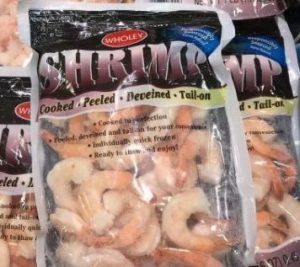
Fearing fraud, US pushes for imported shrimp to be tracked
A bipartisan group of US senators have called for shrimp to be included in new legislation aimed at improving the traceability and transparency of seafood imports and preventing fraud. In a letter to the Senate Appropriations Committee, 11 senators from across the political divide supported language in the Commerce, Justice, Science and Related Agencies appropriations bill that sought to include shrimp in the National Oceanic and Atmospheric Administration’s Seafood Import Monitoring Programme (SIMP). >click to read< 15:58

D.B. Pleschner: Is court the right place to determine ‘best available science’?
A U.S. District Court judge recently ruled that the federal government’s catch limit for California’s central stock of anchovy — currently 25,000 metric tons — is far too high. But instead of weighing all the facts, the judge ignored them, shunned the established precedent of deference to federal agencies’ scientific determinations and instead endorsed the flawed arguments of the advocacy group Oceana. So what happened? >click to read< 21:55

Conservation Law Foundation files Lawsuit to protect right whales
After a year of major losses for North Atlantic right whales, a local environmental advocacy group filed a federal lawsuit against the National Marine Fisheries Service Thursday, arguing that the agency should do more to protect the critically endangered mammals. But lawyers at the Conservation Law Foundation in Boston, which filed the suit, argued that the agency should be doing more. “Regulators are not just morally mandated to act . . . they are also legally required to ensure fishing efforts do not cause harm to these animals,” said Emily Green, an attorney at the foundation. >click to read< 20:47
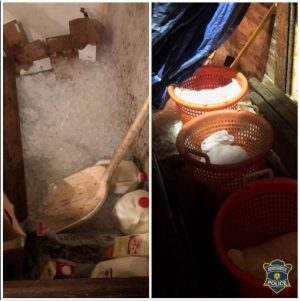
Mass Environmental Police confiscate Scallops over permitted limit on Carlos Rafael vessel
The Massachusetts Environmental Police confiscated 120 pounds of scallops off a Carlos Rafael fishing vessel on Sunday, according to Major Pat Moran. The scallops at being held with their final destination to be determined by the National Marine Fisheries Service, environmental police said. Officers boarded the fishing vessel Dinah Jane, owned by Rafael, on Sunday to conduct a marine fisheries inspection. >click here to read< 14:17
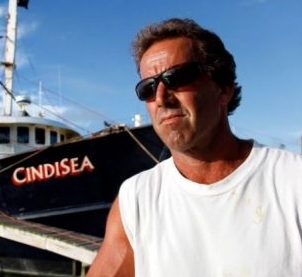
Report detailing enforcement abuses barred from fisherman’s trial
The first criminal trial of a Long Island fisherman charged in connection with a federal probe of a controversial fish-auction program is set to begin, but a report detailing fisheries enforcement abuses by the government has been barred from the trial. Lawyers for Northport fisherman Thomas Kokell, charged in a multi-count indictment with overharvesting fluke, argued in pretrial motions that a 2010 federal inspector general’s report detailing abuses and “overzealousness” by the National Marine Fisheries Service was vital to the defense. >click here to read< 21:35
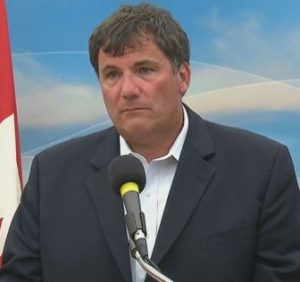
“We’re expecting 100 per cent compliance,” New snow crab fishing rules rein in use of ropes to protect North Atlantic right whales
Fisheries and Oceans Minister Dominic LeBlanc has announced four changes to the snow crab fishery in the southern Gulf of St. Lawrence to protect North Atlantic right whales from entanglement, including reducing the amount of rope floating on the surface and mandatory reporting of all lost gear. The new management measures will take effect immediately and will be enforced “very aggressively,” LeBlanc said during the news conference in Moncton on Tuesday. >click here to read<16:29

Suit by animal protection groups follows deaths of 17 right whales in Canadian and U.S. waters last year
Conservation and animal-protection groups have sued the National Marine Fisheries Service in the United States, alleging it failed to protect right whales from entanglement in commercial fishing gear. The lawsuit, which was filed in federal court in Washington, D.C., late last week, alleges the federal management of the U.S. lobster fishery violates the Endangered Species Act and the Marine Mammal Protection Act. The lawsuit seeks to force the National Marine Fisheries Service to do a sufficient examination of the fishery’s impact on North Atlantic right whales and adopt additional measures to prevent entanglements. >click here to read< 18:55

Lawsuit filed to save North Atlantic Right Whales from death in fishing gear
Today’s lawsuit against the National Marine Fisheries Service, filed in federal court in Washington, D.C., alleges that federal management of the American lobster fishery violates the Endangered Species Act and the Marine Mammal Protection Act. The lawsuit seeks to force the agency to sufficiently examine the fishery’s impacts on North Atlantic right whales and adopt additional measures to prevent more entanglements in the future. The lobster fishery is the most active fixed-gear fishery in the northeastern United States. >click here to read< 12:08 
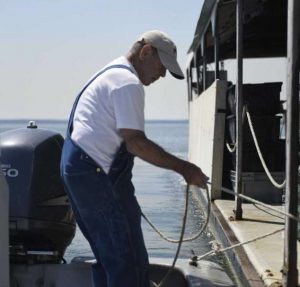
Kelp farm proposed for Long Island Sound
Atlantic Clam Farms of Connecticut is looking to harvest a native species of sea kelp in Long Island Sound. The company, which cultivates hundreds of acres of Greenwich waters for shellfishing, wants to begin its kelp farm in Payea Reach — southeast of Great Captains Island and southwest of Island Beach — and offer the seaweed for human consumption and other commercial uses after an awaited approval from the U.S. Army Corps of Engineers.,, If the kelp farm is approved, set up at the four-acre area would begin on or after Nov. 1 each calendar year, >click here to read<20:55

US review shows pesticides harm threatened salmon, whales
Federal scientists have determined that a family of widely used pesticides poses a threat to dozens of endangered and threatened species, including Pacific salmon, Atlantic sturgeon and Puget Sound orcas. The National Marine Fisheries Service issued its new biological opinion on three organophosphate pesticides — chlorpyrifos, diazinon and malathion — after a yearslong court fight by environmental groups. >click here to read< 19:58 
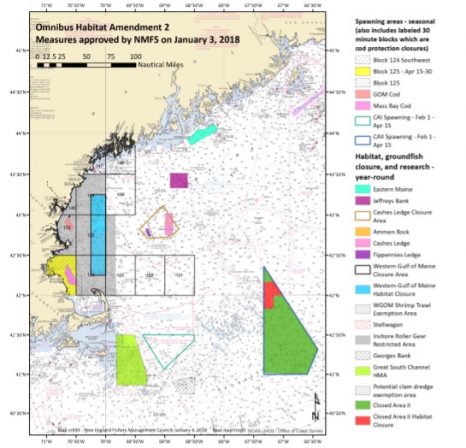
NMFS Approves “Majority” of Council’s Habitat Amendment
NOAA’s National Marine Fisheries Service (NMFS) has approved –with two exceptions –the New England Fishery Management Council’s Omnibus Essential Fish Habitat Amendment 2 (OHA2), paving the way for sweeping change to the existing network of closed and management areas in the Gulf of Maine, Southern New England, and Georges Bank. The changes will provide better protection for both fish and habitat while eliminating closures that no longer serve their intended purpose. click here to read the press release 16:20
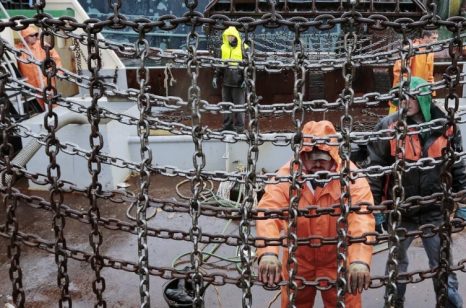
“Groundbreaking” Fish Protection Plan in Place
On Wednesday, January 3, the National Marine Fisheries Service (NMFS), also known as NOAA Fisheries, informed the New England Fishery Management Council that it had “approved the majority” of the Council’s Omnibus Essential Fish Habitat Amendment 2 (OHA2). The approved provisions include two actions that have a direct impact on Framework Adjustment 29 to the Atlantic Sea Scallop Fishery Management Plan, which, among other measures, contains 2018 fishing year specifications and 2019 default specifications for the scallop fishery. click here to read the press release 17:35
“Groundbreaking” Fish Protection Plan in Place – click here to read the story
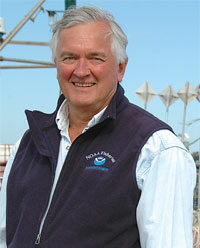
Marty Stillufsen – Who is to blame? and what to do with the money!
Hello Mr. Bullard, Congratulations on your retirement. You have the proud title of being the only respondent to any of my e-mails that I have sent since 2012 (lobster leased territory management suggestion). Thank you! I recently responded to a media article on the Raphael case. I hope that it made it to your desk. “Raphael apparently has a long history of fisheries and IRS violations that has been going on for quite some time. It’s a mystery to me how the National Marine Fisheries Service avoided monitoring this individual sooner; considering the disproportionate quantity of permits he held. click here to read the letter 13:14

9th Circuit Gives Enviros New Way to Shut Down Hawaii Fishing Fleet
Federal agencies must rethink permitting a swordfish-catching operation to increase the use of a fishing method that can kill endangered sea turtles and seabirds, according to a decision by a federal appeals court on Tuesday. Two of the three judges on a Ninth Circuit Court of Appeals panel agreed with the Turtle Island Restoration Network and other environmental organizations that argued the National Marine Fisheries Service acted improperly when it increased the amount of sea turtles that could be killed incidentally in the waters off of Hawaii as part of a fishing method called longlining. Specifically, the majority said the fisheries service failed to properly integrate a climate-based model that showed significant declines in the population of the loggerheads sea turtle. click here to read the story 09:06 
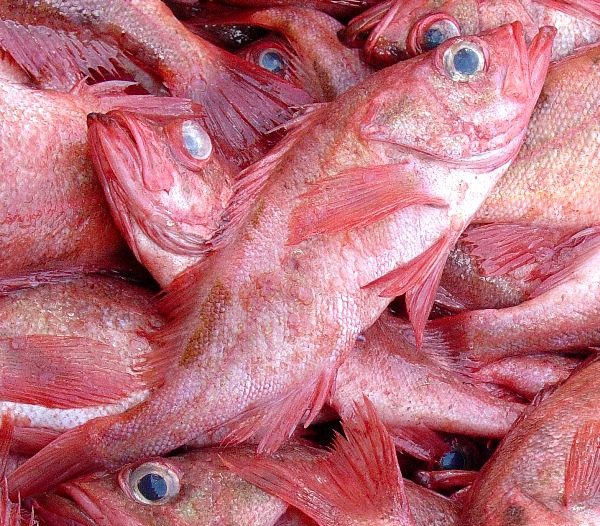
Ocean perch stock rebuilt, could lead to more commercial fishing opportunities in 2019
Federal restrictions designed to protect Pacific ocean perch from overfishing have worked well enough for the Pacific Fishery Management Council to consider the fishery “rebuilt,” meaning it will relax restrictions. Once the new rules take effect in 2019 it should have significant economic value to the coast, experts say. “It’s a big deal for fisheries along the coast,” said Phil Anderson, who works with Ocean Gold Seafood in Westport and serves as chairman of the Pacific Fishery Management Council. click here to read the story 09:47
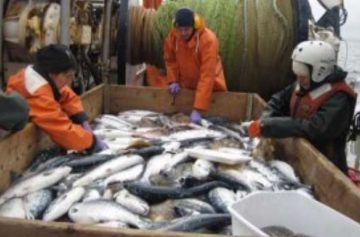
Money fish rule
Once more trawlers in the Bering Sea have gone to court in an effort to stop the National Marine Fisheries Service (NMFS) from billing them for the costs of managing Chinook salmon in the Bering Sea.,,, U.S. Commerce Department “cost recovery regulations, as applied to catcher-processor sector participants violate the (Magnuson-Stevens Act) MSA and (Administrative Procedures Act) APA, are arbitrary, capricious, an abuse of discretion and not in accordance with law, and are in excess of statutory jurisdiction, authority or limitations and short of statutory right,” the trawlers charged in a lawsuit filed Tuesday in the U.S. District Court for Alaska. click here to read the story 08:25
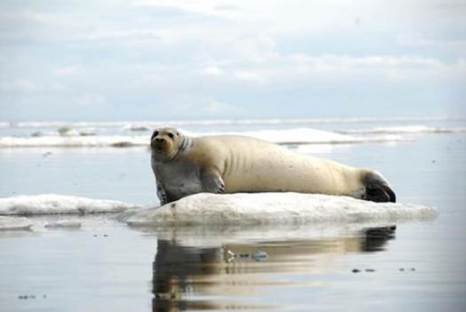
Listing the Bearded Seal as Threatened: A Disturbing Victory for Untestable Hypotheses and Flawed Models.
The Center for Biological Diversity also petitioned to list thriving populations of Bearded Seals as threatened or endangered by melting sea ice. In response to their petition, the National Marine Fisheries Service (NMFS) assembled a Bearded Seal Biological Review Team (BRT). The BRT’s report can be read here. Oddly, despite promoting a threatened designation, the BRT reports Bearded Seals have existed for over 1-2 million years, surviving far greater bouts of climate change as the earth bounced between several ice ages and warmer interglacials. An interesting (click here) read by Jim Steele 18:25:37
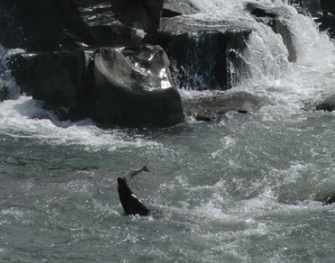
Dwindling winter steelhead are on their own again at Willamette Falls
With the first four dozen winter steelhead counted at Willamette Falls and scattered early catches reported in both the Clackamas and Sandy rivers, Oregon scientists, fish managers, anglers and others must helplessly hold their figurative breath. Sea lions, which chewed through as much as 25 percent of the dismal return of 2016-17 steelhead, pretty much have free rein this winter to repeat the carnage. “The impact, if left un-managed, will be pretty devastating,” said Shaun Clements, senior fish division policy advisor for the Oregon Department of Fish and Wildlife. click here to read the story 16:11
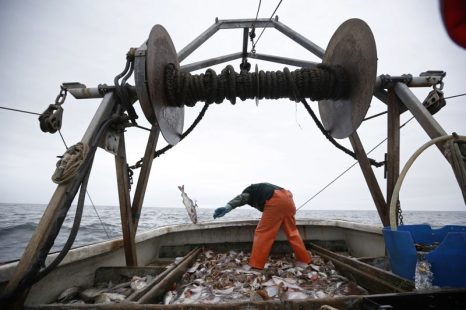
Omnibus Essential Fish Habitat Amendment – Plan to change New England ocean stewardship up for debate
The federal government is close to enacting new rules about New England ocean habitat that could mean dramatic changes for the way it manages the marine environment and fisheries. The National Marine Fisheries Service has been working on the rules for some 13 years and recently made them public. They would change the way the government manages the Gulf of Maine, Georges Bank and southern New England waters, which are critical pieces of ocean for rare whales, unique underwater canyons and commercial fishermen.,, The proposal states that its goal is to minimize “adverse effects of fishing on essential fish habitat.” click here to read the story 10:50
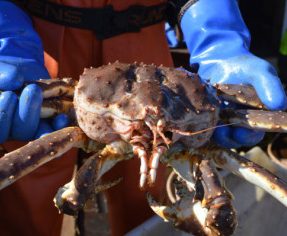
Bristol Bay red king crab quota caught
The Bristol Bay red king crab season finished up last week when the entire allowable catch was harvested. “The Bristol Bay Red King Crab fishery went fairly well,” Miranda Westphal said. Westphal is the area management biologist for the Alaska Department of Fish and Game in Dutch Harbor. “A little slower than we would like to have seen, but they wrapped up with a total catch of 6.59 million pounds. So they caught all of the catch that was available for the season.” click here to read the story 17:00

Trump Administration Dives Into Fish Fight
An unprecedented Trump administration decision over the summer that overruled an interstate fishing commission has drawn the ire of critics who worry that keeping a healthy and viable supply of flounder in the Atlantic Ocean is being sacrificed to commercial profits. While the fight over fish largely has been out of the public eye, it has implications for Maryland and other coastal states. In July, Secretary of Commerce Wilbur Ross overruled a recommendation by the Atlantic States Marine Fisheries Commission finding New Jersey out of compliance with proposed 2017 harvest limits of summer flounder along the Atlantic coast. click here to read the story 15:28
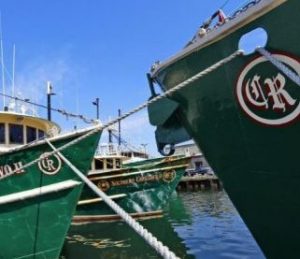
NOAA Bans Rafaels Vessels from Groundfishing
Calling its actions “unprecedented” NOAA announced Monday that Carlos Rafael’s vessels are banned from catching groundfish for the foreseeable future. The government agency also said the vessels currently at sea on a groundfish trip must return to port, where they will be allowed to unload and sell their catch. click here to read the story 13:11
Fishing fleet dominated by ‘Codfather’ grounded – Jailed New Bedford fishing mogul Carlos Rafael’s empire, once one of the largest fish businesses in the country, continues to crumble. click here to read the story 13:31
Alaska tops nation in total fishing volume for 20th year
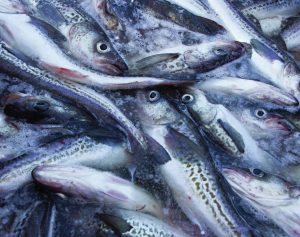 The annual report detailing national and regional economic impacts of U.S. fisheries totaled $9.6 billion in value in 2016 with Alaska as usual producing more than the rest of the nation combined. Alaska produced 58 percent of all landings and for the 20th straight year brought in the highest volume, according to the 2016 Fisheries of the United States report by the National Marine Fisheries Service. The top spot for all ports in the nation went to Dutch Harbor, which brought in 770 million pounds with Alaska pollock accounting for 89 percent of that volume. click here to read the story 16:43
The annual report detailing national and regional economic impacts of U.S. fisheries totaled $9.6 billion in value in 2016 with Alaska as usual producing more than the rest of the nation combined. Alaska produced 58 percent of all landings and for the 20th straight year brought in the highest volume, according to the 2016 Fisheries of the United States report by the National Marine Fisheries Service. The top spot for all ports in the nation went to Dutch Harbor, which brought in 770 million pounds with Alaska pollock accounting for 89 percent of that volume. click here to read the story 16:43
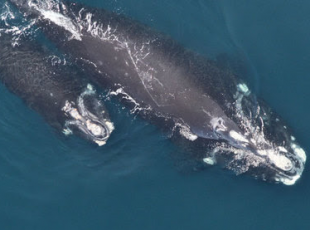
Right whale deaths spur regulators to eye fishing gear modifications
This has been a tough year for North Atlantic right whales. Late in October, according to the International Fund for Animal Welfare, the badly decomposed carcass of a right whale was found ashore on Nashawena Island, south of Cape Cod in Massachusetts. It was the 16th of the highly endangered species known to have died in U.S. or Canadian waters in 2017. Starting in the early spring and continuing through the late summer months, a dozen dead right whales were found floating in Canada’s Gulf of St. Lawrence.,,, Last year, the NOAA Fisheries Large Whale Take Reduction Team (TRT) began a five-year review click here to read the story 08:23






